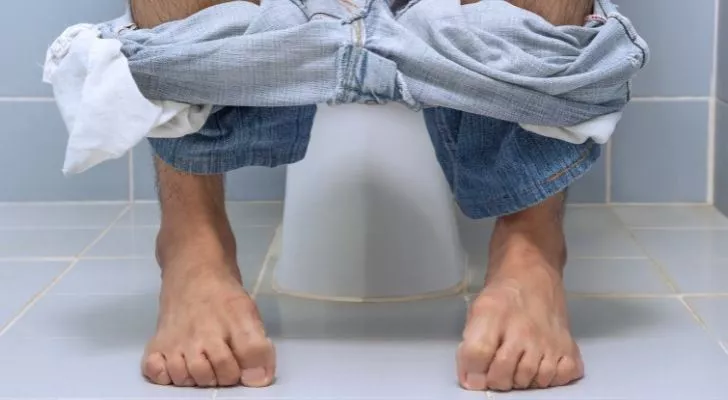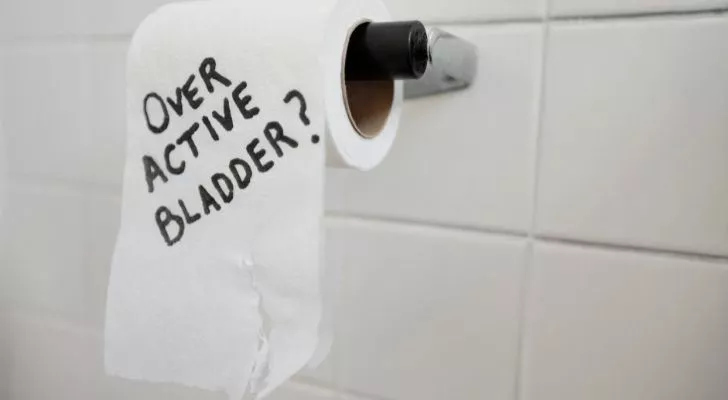It’s common knowledge that people urinate between four and ten times daily, but did you know that the bladder is responsible for this? The bladder is an essential organ that helps get rid of unwanted fluids from the body. This article discusses the bladder’s role in the body and how it works.
What is the Bladder’s Function?

The bladder is a sac that stores urine until it is time to use the bathroom. Once the kidneys filter fluids in our body, it flows to the bladder. As the bladder fills with urine, it expands, and nerve endings in the bladder walls signal to the brain that it is full. This triggers the urge to urinate, and the brain sends a signal to the bladder to contract and release urine. The urine then flows out through the urethra until the bladder is empty.
What is the Purpose of Urination?

Urination is vital because it helps the body eliminate unwanted cells and toxins. Our kidneys filter out any unwanted cells and toxins from our blood, and urination is the process of getting rid of them. Essentially, urine is the leftover waste from our blood.
What Happens if the Bladder Stops Working?

If the bladder stops functioning correctly, the body will be unable to eliminate toxins that the kidneys have filtered out. Nerve damage is the primary cause of bladder dysfunction. If nerves in the bladder walls are damaged, the bladder will have difficulty sending messages to the brain, leading to sudden urges to urinate. There are three types of bladder control issues: overactive bladder, lack of control of sphincter muscles, and nerve damage in the bladder walls.
Overactive Bladder
An overactive bladder is the result of the brain sending unexpected signals to the nerves in the bladder, causing a sense of urgency to urinate, even if the bladder is not full.
Lack of Control of Sphincter Muscles
If you lack control of your sphincter muscles due to nerve damage, you may have difficulty holding your urine in.
Sometimes, a small amount of urine may leak out or you may involuntarily pee. Urine retention is the third type of nerve damage which occurs when your bladder is too weak to contract or the nerves are so damaged that they do not receive messages from the brain to release pee. This results in a full bladder without the sensation of needing to pee, and sometimes leads to an overfull bladder and kidney infections. Treatment options for bladder control issues include bladder training, medication, electrical stimulation, and surgery. However, if the case is serious, you may need to undergo surgery or electrical stimulation. Unfortunately, you cannot survive without a bladder as it plays a crucial role in eliminating toxins from the body. If your bladder has to be removed, a stoma bag may be attached or a bladder-type storage pouch can be reconstructed from a part of your intestines, and a catheter will be used to help you pee. The bladder is an essential part of our urinating system, and without it, we would not be able to get rid of unwanted toxins from our bodies. It acts as a storage tank for pee, and its absence would lead to uncontrolled urine flow.
FAQ
1. What is the function of the bladder?
The bladder is a muscular sac located in the lower abdomen that stores urine until it is ready to be released from the body. Its primary function is to collect and hold urine, which is produced by the kidneys and transported to the bladder through two tubes called ureters.
2. How does the bladder fill up?
The bladder fills up as urine is produced by the kidneys and transported to the bladder through the ureters. As the bladder fills, the muscles in the bladder wall stretch to accommodate the increasing volume of urine. When the bladder is full, nerve signals are sent to the brain, which triggers the urge to urinate.
3. How much urine can the bladder hold?
The amount of urine the bladder can hold varies depending on the individual and their level of hydration. On average, the bladder can hold between 400-600 milliliters of urine. However, some people may have a smaller or larger bladder capacity.
4. What happens if the bladder doesn’t empty completely?
If the bladder doesn’t empty completely, it can lead to a condition called urinary retention. This can cause discomfort, pain, and an increased risk of urinary tract infections. In some cases, urinary retention can also lead to kidney damage if left untreated.
5. Can holding in urine for too long be harmful?
Holding in urine for too long can be harmful as it can lead to urinary tract infections, bladder damage, and in severe cases, kidney damage. It is important to listen to your body’s signals and empty your bladder when you feel the urge to urinate.
6. How does the bladder empty?
The bladder empties through a tube called the urethra, which connects the bladder to the outside of the body. When the bladder muscles contract, urine is forced out of the bladder and into the urethra. The urethral sphincter, a ring-shaped muscle at the base of the bladder, relaxes to allow urine to pass out of the body.
7. Can the bladder be trained to hold more urine?
It is possible to train the bladder to hold more urine by gradually increasing the time between urinations. This can be done by delaying urination when the urge to go arises. However, it is important to note that holding in urine for too long can be harmful and can lead to urinary tract infections or bladder damage.
8. What are some common bladder problems?
Some common bladder problems include urinary incontinence, urinary tract infections, bladder cancer, and bladder stones. Urinary incontinence is the loss of bladder control, which can cause leakage or an inability to hold urine. Urinary tract infections are caused by bacteria entering the urinary tract and can cause pain, discomfort, and frequent urination. Bladder cancer is a type of cancer that affects the cells in the bladder. Bladder stones are hard deposits that form in the bladder and can cause pain, discomfort, and difficulty urinating.

Zayn Anderson is a prolific writer with a passion for uncovering the world’s intriguing facts. Armed with an insatiable curiosity, he delves into various subjects, from history and science to nature and technology.
